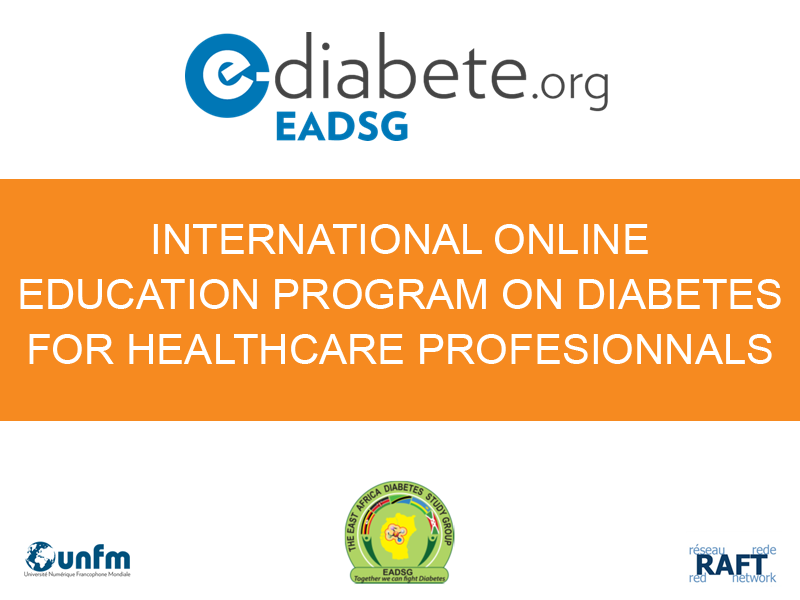Quiz-summary
0 of 16 questions completed
Questions:
- 1
- 2
- 3
- 4
- 5
- 6
- 7
- 8
- 9
- 10
- 11
- 12
- 13
- 14
- 15
- 16
Information
TARGETS FOR DIABETES CONTROL
You have already completed the quiz before. Hence you can not start it again.
Quiz is loading...
You must sign in or sign up to start the quiz.
You have to finish following quiz, to start this quiz:
Results
0 of 16 questions answered correctly
Your time:
Time has elapsed
You have reached 0 of 0 points, (0)
Categories
- Not categorized 0%
-
You need to review the course to improve your result.
-
That’s good, feel free to review the course to improve your result.
- 1
- 2
- 3
- 4
- 5
- 6
- 7
- 8
- 9
- 10
- 11
- 12
- 13
- 14
- 15
- 16
- Answered
- Review
-
Question 1 of 16
1. Question
The targets for good control of diabetes include:
- Fasting blood glucose 4 -7 mmol/l
Correct
Incorrect
-
Question 2 of 16
2. Question
The targets for good control of diabetes include:
- Post-prandial blood glucose 5 – 10 mmol/l
Correct
Incorrect
-
Question 3 of 16
3. Question
The targets for good control of diabetes include:
- Bedtime blood glucose not less than 6 – 10 mmol/l
Correct
Incorrect
-
Question 4 of 16
4. Question
The targets for good control of diabetes include:
- HbA1c less than 7%
Correct
Incorrect
-
Question 5 of 16
5. Question
The targets for good control of diabetes include:
- Total cholesterol less than 5.2 mmol/l
Correct
Incorrect
-
Question 6 of 16
6. Question
The targets for good control of diabetes include:
- Fasting triglycerides less than 1.7 mmol/l
Correct
Incorrect
-
Question 7 of 16
7. Question
The targets for good control of diabetes include:
- Body mass index (BMI) less than 18 – 25 kg/m2
Correct
Incorrect
-
Question 8 of 16
8. Question
The targets for good control of diabetes include:
- Blood pressure less than 130/80 mmHg
Correct
Incorrect
-
Question 9 of 16
9. Question
Hyperglycemia is the major contributor to microvascular complications
Correct
Incorrect
-
Question 10 of 16
10. Question
A 1% decrease in HbAIc leads to 35% reduction in the risk of complications
Correct
Incorrect
-
Question 11 of 16
11. Question
Tight glycaemic control has no significant effect on reduction in the risk of cardiovascular events
Correct
Incorrect
-
Question 12 of 16
12. Question
Lowering elevated blood pressure reduces:
- Strokes
Correct
Incorrect
-
Question 13 of 16
13. Question
Lowering elevated blood pressure reduces:
- Diabetes related deaths
Correct
Incorrect
-
Question 14 of 16
14. Question
Lowering elevated blood pressure reduces:
- Heart failure
Correct
Incorrect
-
Question 15 of 16
15. Question
Lowering elevated blood pressure reduces:
- Microvascular complications
Correct
Incorrect
-
Question 16 of 16
16. Question
Lowering elevated blood pressure reduces:
- Visual loss
Correct
Incorrect
Quiz-summary
0 of 16 questions completed
Questions:
- 1
- 2
- 3
- 4
- 5
- 6
- 7
- 8
- 9
- 10
- 11
- 12
- 13
- 14
- 15
- 16
Information
EPIDEMIOLOGY QUIZ
You have already completed the quiz before. Hence you can not start it again.
Quiz is loading...
You must sign in or sign up to start the quiz.
You have to finish following quiz, to start this quiz:
Results
0 of 16 questions answered correctly
Your time:
Time has elapsed
You have reached 0 of 0 points, (0)
Categories
- Not categorized 0%
-
You need to review the course to improve your result.
-
That’s good, feel free to review the course to improve your result.
- 1
- 2
- 3
- 4
- 5
- 6
- 7
- 8
- 9
- 10
- 11
- 12
- 13
- 14
- 15
- 16
- Answered
- Review
-
Question 1 of 16
1. Question
The targets for good control of diabetes include:
- Fasting blood glucose 4 -7 mmol/l
Correct
Incorrect
-
Question 2 of 16
2. Question
The targets for good control of diabetes include:
- Post-prandial blood glucose 5 – 10 mmol/l
Correct
Incorrect
-
Question 3 of 16
3. Question
The targets for good control of diabetes include:
- Bedtime blood glucose not less than 6 – 10 mmol/l
Correct
Incorrect
-
Question 4 of 16
4. Question
The targets for good control of diabetes include:
- HbA1c less than 7%
Correct
Incorrect
-
Question 5 of 16
5. Question
The targets for good control of diabetes include:
- Total cholesterol less than 5.2 mmol/l
Correct
Incorrect
-
Question 6 of 16
6. Question
The targets for good control of diabetes include:
- Fasting triglycerides less than 1.7 mmol/l
Correct
Incorrect
-
Question 7 of 16
7. Question
The targets for good control of diabetes include:
- Body mass index (BMI) less than 18 – 25 kg/m2
Correct
Incorrect
-
Question 8 of 16
8. Question
The targets for good control of diabetes include:
- Blood pressure less than 130/80 mmHg
Correct
Incorrect
-
Question 9 of 16
9. Question
Hyperglycemia is the major contributor to microvascular complications
Correct
Incorrect
-
Question 10 of 16
10. Question
A 1% decrease in HbAIc leads to 35% reduction in the risk of complications
Correct
Incorrect
-
Question 11 of 16
11. Question
Tight glycaemic control has no significant effect on reduction in the risk of cardiovascular events
Correct
Incorrect
-
Question 12 of 16
12. Question
Lowering elevated blood pressure reduces:
- Strokes
Correct
Incorrect
-
Question 13 of 16
13. Question
Lowering elevated blood pressure reduces:
- Diabetes related deaths
Correct
Incorrect
-
Question 14 of 16
14. Question
Lowering elevated blood pressure reduces:
- Heart failure
Correct
Incorrect
-
Question 15 of 16
15. Question
Lowering elevated blood pressure reduces:
- Microvascular complications
Correct
Incorrect
-
Question 16 of 16
16. Question
Lowering elevated blood pressure reduces:
- Visual loss
Correct
Incorrect
To take advantage of free full access to the education program. Sign-in / Fill the registration

Prof. Kaushik Ramaiya
Prof. Kaushik Ramaiya, MB,ChB, MMed. is Consultant Physician (Internal Medicine / Endocrinology) and Chief Executive Officer at Shree Hindu Mandal Hospital, Dar es Salaam, Tanzania, Hon. Professor of Medicine & Global Health at Liverpool School of Tropical Medicine, UK., and Hon. Lecturer at the Department of Internal Medicine at Muhimbili University of Health and Allied Sciences (MUHAS), Dar es Salaam.
Prof. Ramaiya has been actively involved in research on diabetes for many years. He specialised, among other topics, on glucose tolerance and cardiovascular disease risk factors and mainly focused on Indian communities living in Africa.


